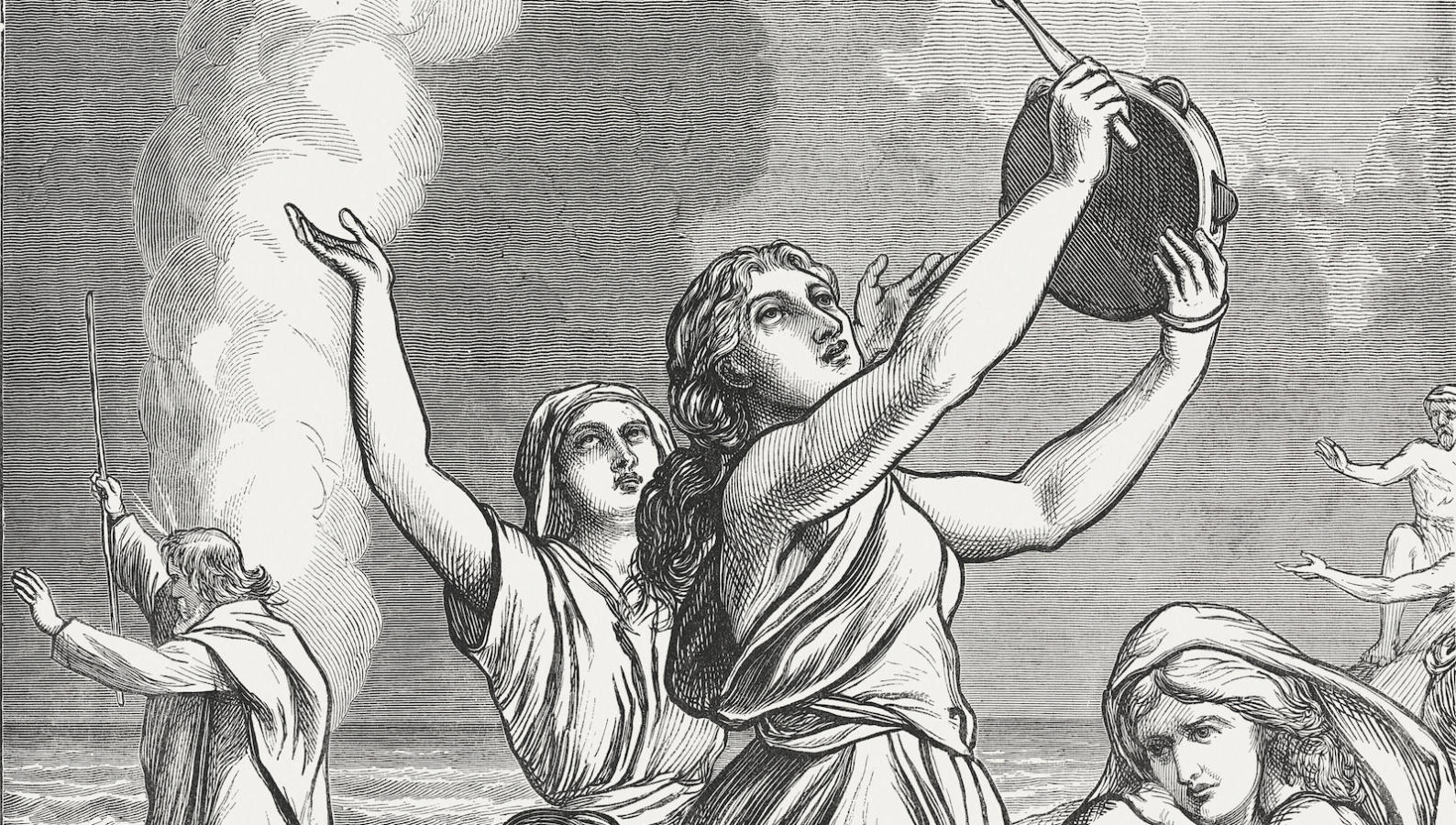Commentary on Parashat Nitzavim-Vayeilech, Deuteronomy 29:9-31:30
We often read Parashat Vayelekh on Shabbat Shuvah, the Shabbat of repentance between Rosh Hashanah and Yom Kippur. Fittingly, this Torah portion deals with sin and repentance, with becoming lost on our way and returning to our true selves.
In the portion, God foretells Israel’s future sins and their consequences, how they will turn to other gods and then be overtaken by suffering, leading God to say, “anokhi haster astir panai–I will surely hide my face (Deut. 31:16-18).” The hidden face of God, the classic theological expression of the presence of suffering and evil in the world, here seems to be a response by God to the sins of Israel, a punishment for their misdeeds.
The Hasidic master, Rebbe Ephraim of Sudylkow, understands this passage differently. Carefully re-reading the Hebrew, Rebbe Ephraim separates the phrase into two sections and reinterprets the implications of God’s actions. When anokhi haster — the I-ness of God — is hidden through our entering the slumber of self-deception and idolatry, then astir panai–[God’s] face will be hidden.
When we forget our values and our humanity, we obscure God’s holiness from the world; then God’s face, God’s true presence, is hidden from us. When we pervert what is just and right through the pursuit of that which is not the true center, we cause God’s presence to disappear, not as punishment, but as consequence.
With your help, My Jewish Learning can provide endless opportunities for learning, connection and discovery.
Wealth & Complacency
The Torah explains that this turning away will occur when the people of Israel “eat their fill and grow fat and turn to other gods (Deut. 31:20).” It is through complacency and an absorption in wealth that Israel will lose sight of the locus of divinity and the genuine values that flow from it. And this prophesy has come true.
Our modern consumer society affords us wealth that often engenders precisely the indifference and false pursuits that our portion describes. Caught up as we are in material gain and upward mobility, we often lose sight of our true values. As we spend money on clothes, cars, coffee, and all the other goods we consume, do we take the time to see how our lifestyle conforms to our deepest values?
Do we check the source of the products we consume, where they are made and how? Do we consider the nature of our work and whether it brings healing or suffering to the world? Do we consider our investments and whether they meet our ethical standards? Do we give away the ten percent of our income that Judaism expects? Can we genuinely ask ourselves how we earn and spend money, not in the sense of self-denying guilt-ridden asceticism, but with a gentle and wise questioning of how we are living out our core ideals and whether we are hiding or revealing God’s face?
How then do we transform ourselves to reveal God’s face, God’s self, in the world? What enables us to lead a life where our actions are manifestations of our core values?
The Power of Song
Our Torah portion’s answer, remarkably, is song. God instructs “therefore, write down this song and teach it to the people of Israel, put it in their mouths so that this song will be a witness for Me before the people of Israel.” (Deut. 31:19)
Song here is meant to awaken the people of Israel, to help them reconnect to their essentially pure nature, the fundamental meaning of teshuvah (repentance), and so enable them to live out their true commitments. The true song enables the people of Israel to once again find God’s face; to turn away from the subtle idols of wealth and greed and to bring God’s holiness into their midst.
In Rebbe Nachman of Breslov‘s terms, it is only through this song of faith, this assertion of meaning, hope, and possibility, that one leaps over the abyss of God’s hiddenness to encounter the truth of anokhi–I-ness, that is both God’s true face and our own.
It is easy to get lost, to find ourselves unwittingly acting in ways estranged from our fundamental principles. Yet we can find our way to a life that embodies those core beliefs by manifesting our true self through the hope, confidence, and power, which is the nature of song. Song, that fundamental assertion of joy and meaning, can remind us of our authentic self and our genuine power. Through it, we can transform the way we live and fully embrace our true nature–our potential to transform ourselves and the world. In so doing, the deep anokhi, the true faces of both ourselves and God, will be revealed.
Provided by American Jewish World Service, pursuing global justice through grassroots change.
Hasidic
Pronounced: khah-SID-ik, Origin: Hebrew, a stream within ultra-Orthodox Judaism that grew out of an 18th-century mystical revival movement.
Kabbalah
Pronounced: kah-bah-LAH, sometimes kuh-BAHL-uh, Origin: Hebrew, Jewish mysticism.
Rosh Hashanah
Pronounced: roshe hah-SHAH-nah, also roshe ha-shah-NAH, Origin: Hebrew, the Jewish new year.
Shabbat
Pronounced: shuh-BAHT or shah-BAHT, Origin: Hebrew, the Sabbath, from sundown Friday to sundown Saturday.
Torah
Pronunced: TORE-uh, Origin: Hebrew, the Five Books of Moses.
teshuvah
Pronounced: tuh-SHOO-vah, (oo as in boot) Origin: Hebrew, literally “return”, referring to the “return to God” teshuvah is often translated as “repentance.” It is one of the most significant themes and spiritual components of the High Holidays.



